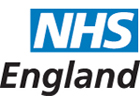The National Immunoglobulin Database
To complement the Clinical Guidelines and Demand Management Plan, support long-term planning, and provide data on the use of immunoglobulin in rare disorders, the National Immunoglobulin Database has been developed. The Immunoglobulin Database has now been brought internally onto the N3 network and will be completely managed by MDSAS.
NHS network connection is required to access the Immunoglobulin Database
Key Actions for Trusts:
Key Actions for Trusts:
- Nominate a validator (typically the Chief Pharmacist) to ensure only authorised individuals have access to the database and send this information to MDSAS.
- Ensure that all new patients initiated on immunoglobulin are registered on the database and usage information is entered on a regular basis.
- Ensure that all existing long-term immunology and neurology patients are registered on the database as they attend the Trust for infusions or their annual review. Registration and all immunoglobulin usage information must be entered.
- Communicate to all pharmacists and clinicians within the trust the information that will need to be collected/supplied in order to successfully and accurately populate the database.
- Ensure that immunoglobulin usage and entry into the database is audited. The DH will run compliance reports on a regular basis.
Database Forms
Database Forms:
To assist with entering the required data into the database an Immunoglobulin request form has been produced. The form illustrates the majority of the information that will need to be collected in order to complete the database. We recommend that all Trusts that use the database download these forms and consider how best to collect this information through your normal patient pathway/process.
Database Update Document:
The Department of Health has published a National Immunoglobulin Database Update. This update document describes initial findings from the Database on immunoglobulin prescribing patterns, includes information on the forthcoming Model Commissioning Policy for immunoglobulin and offers a summary of the updated guidance on the use of immunoglobulin for measles post-exposure prophylaxis issued by the Health Protection Agency. This document can found on the DH website here or by clicking the button below.

